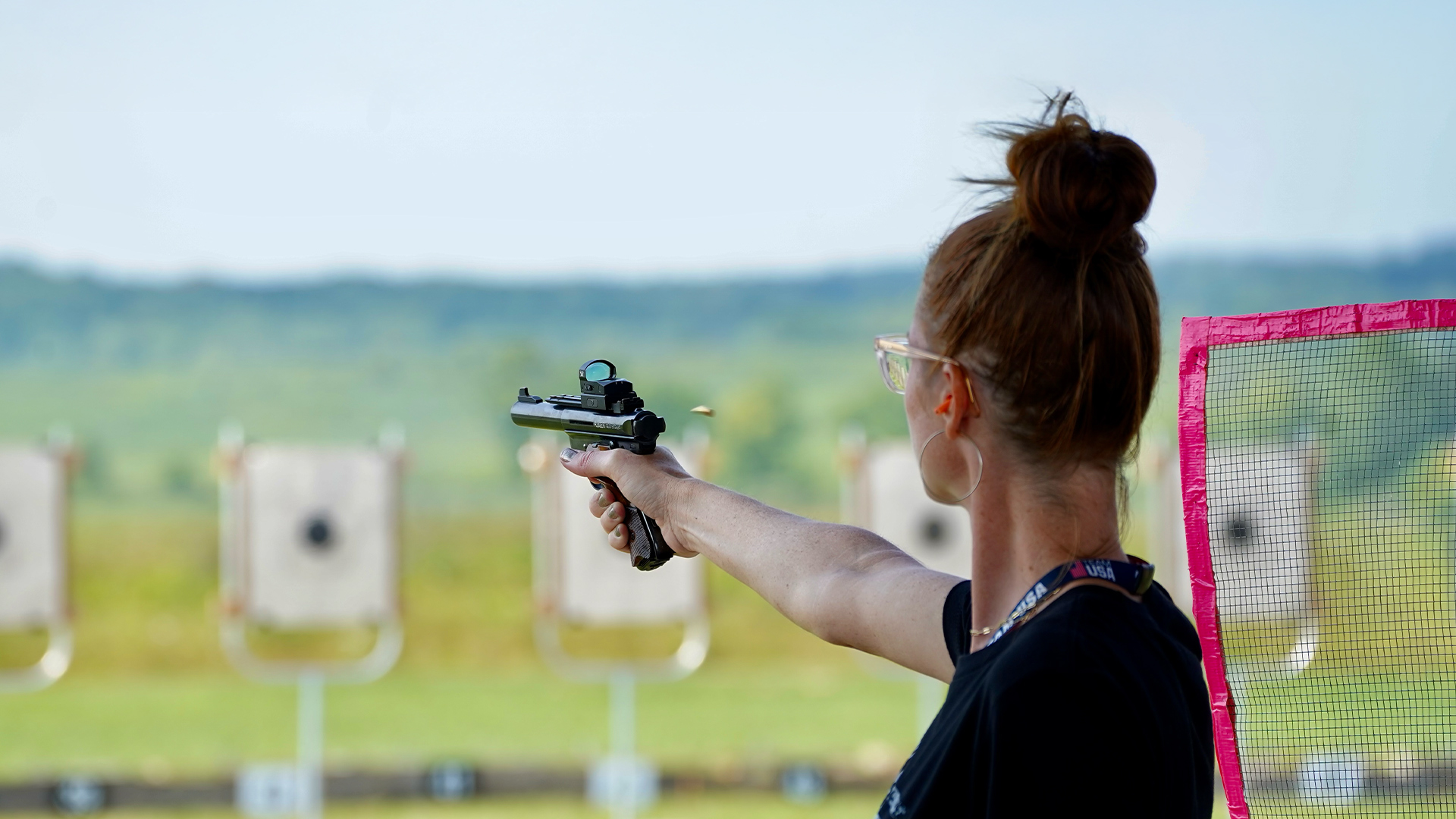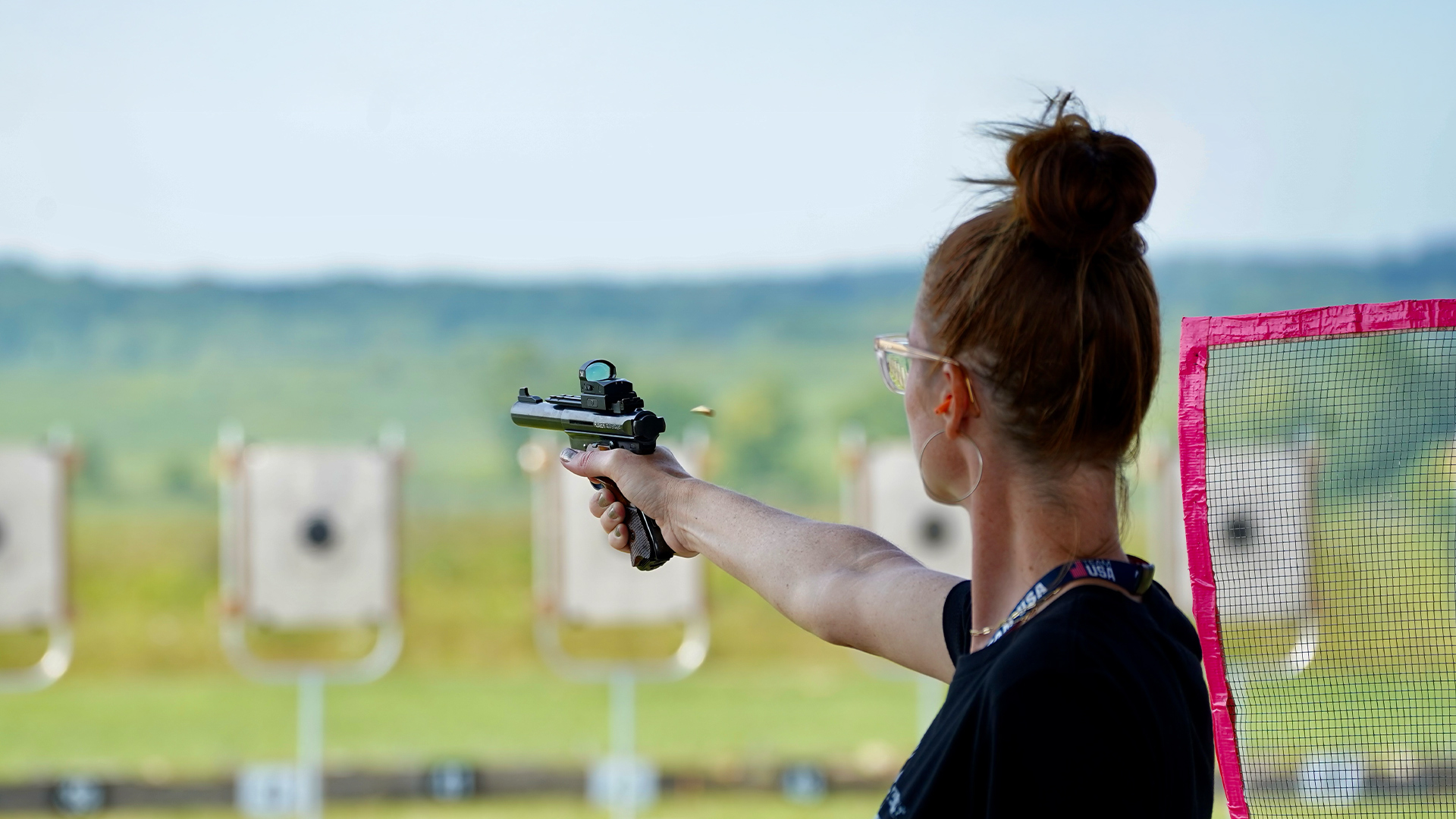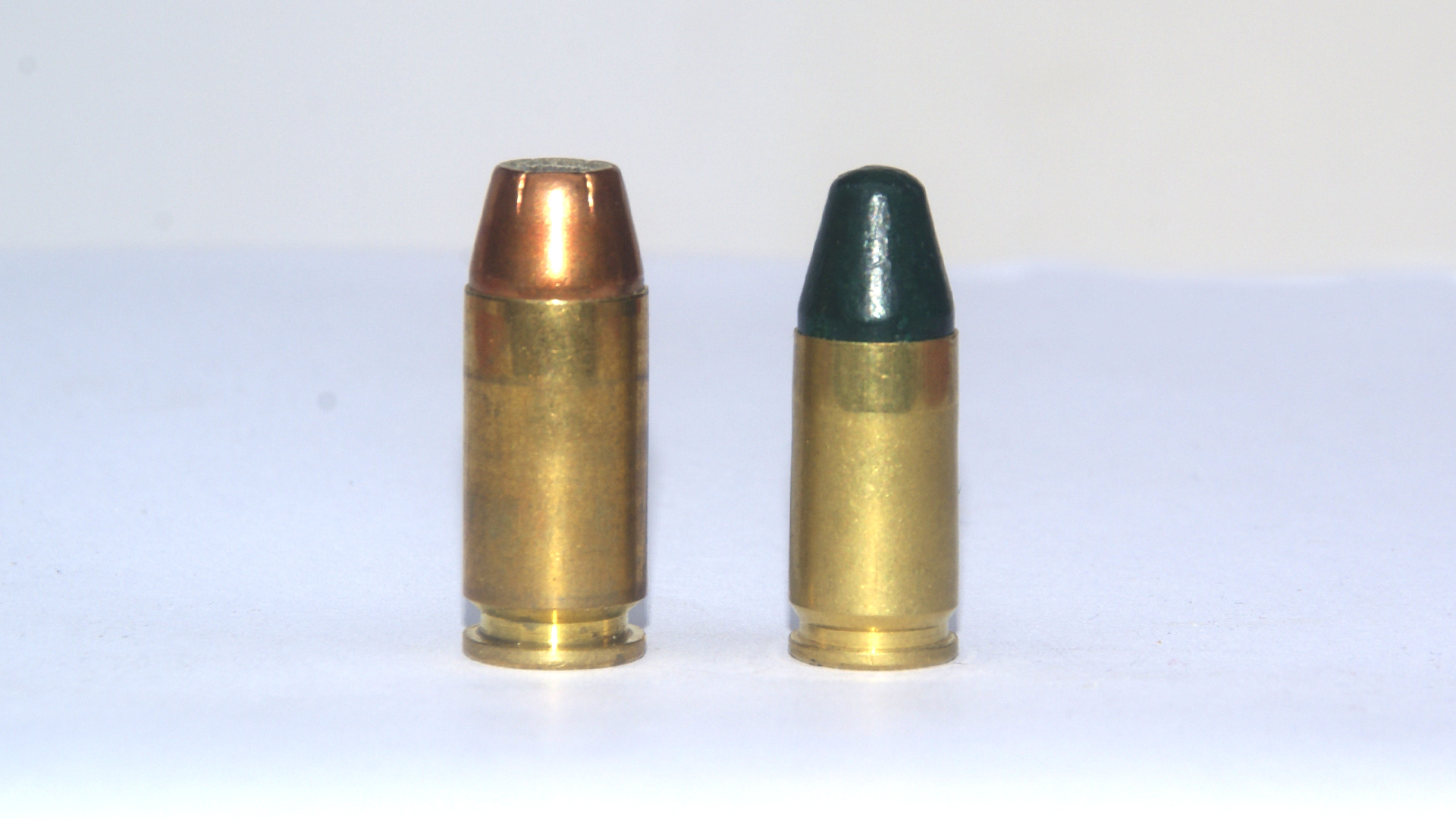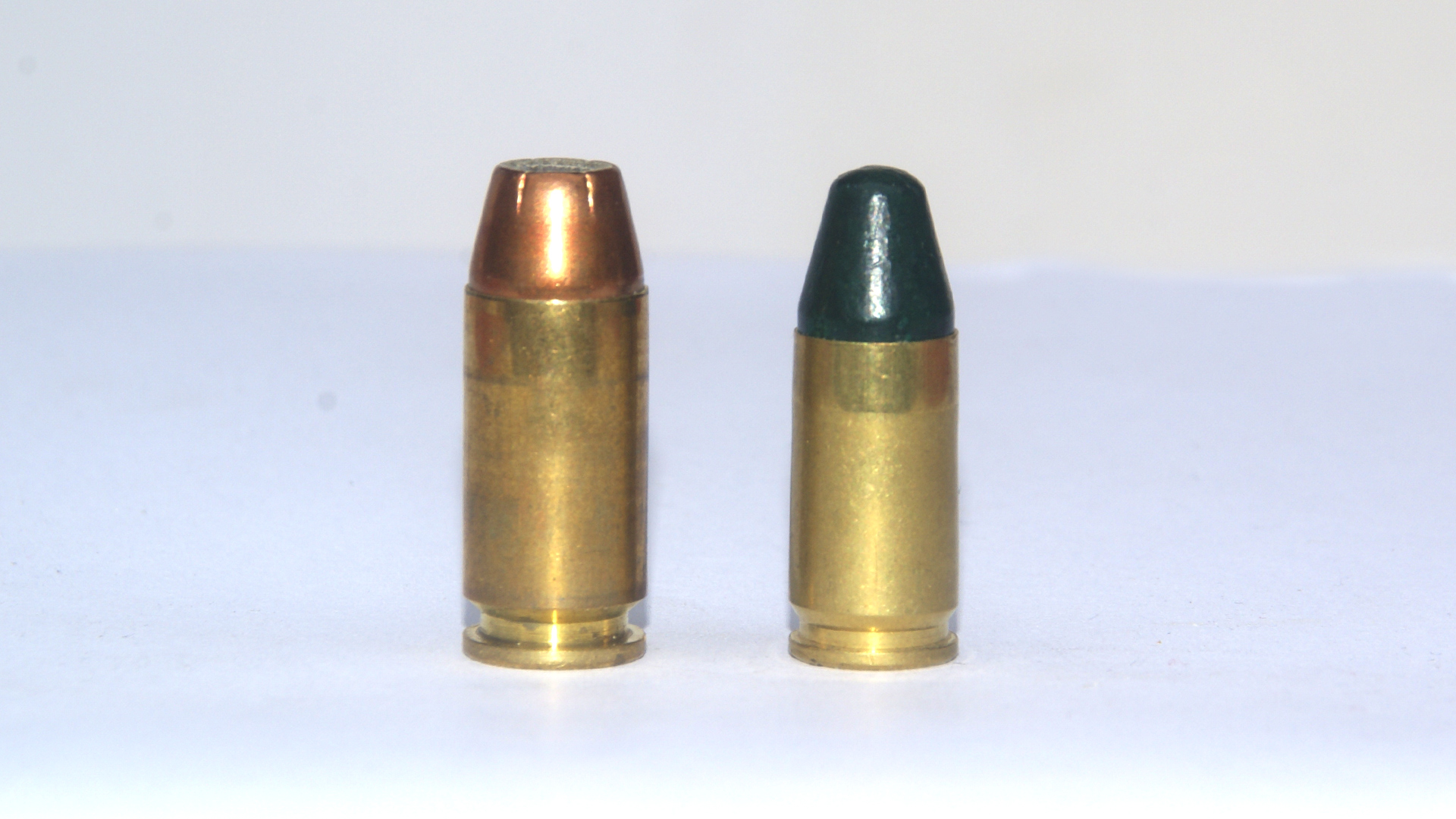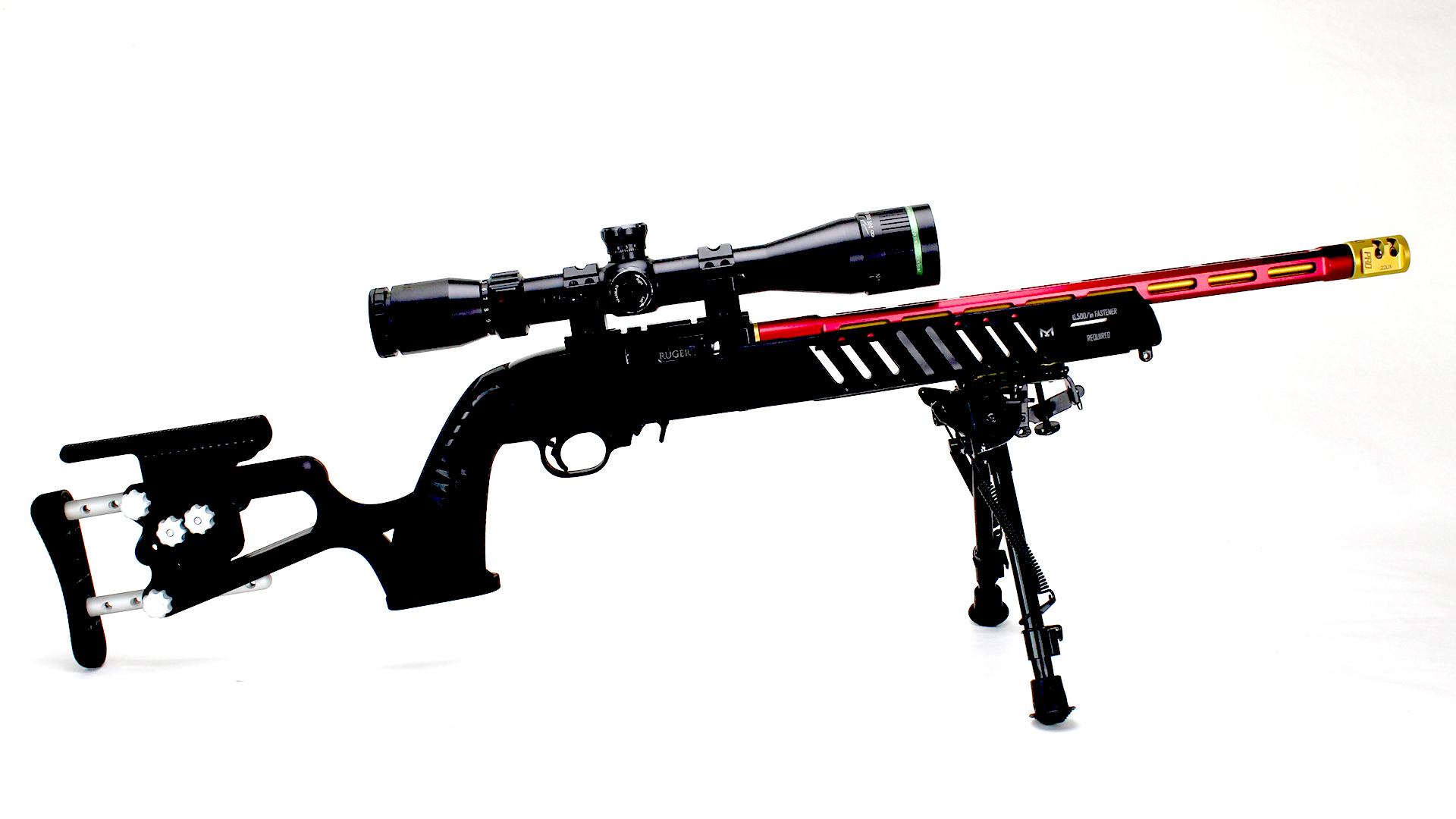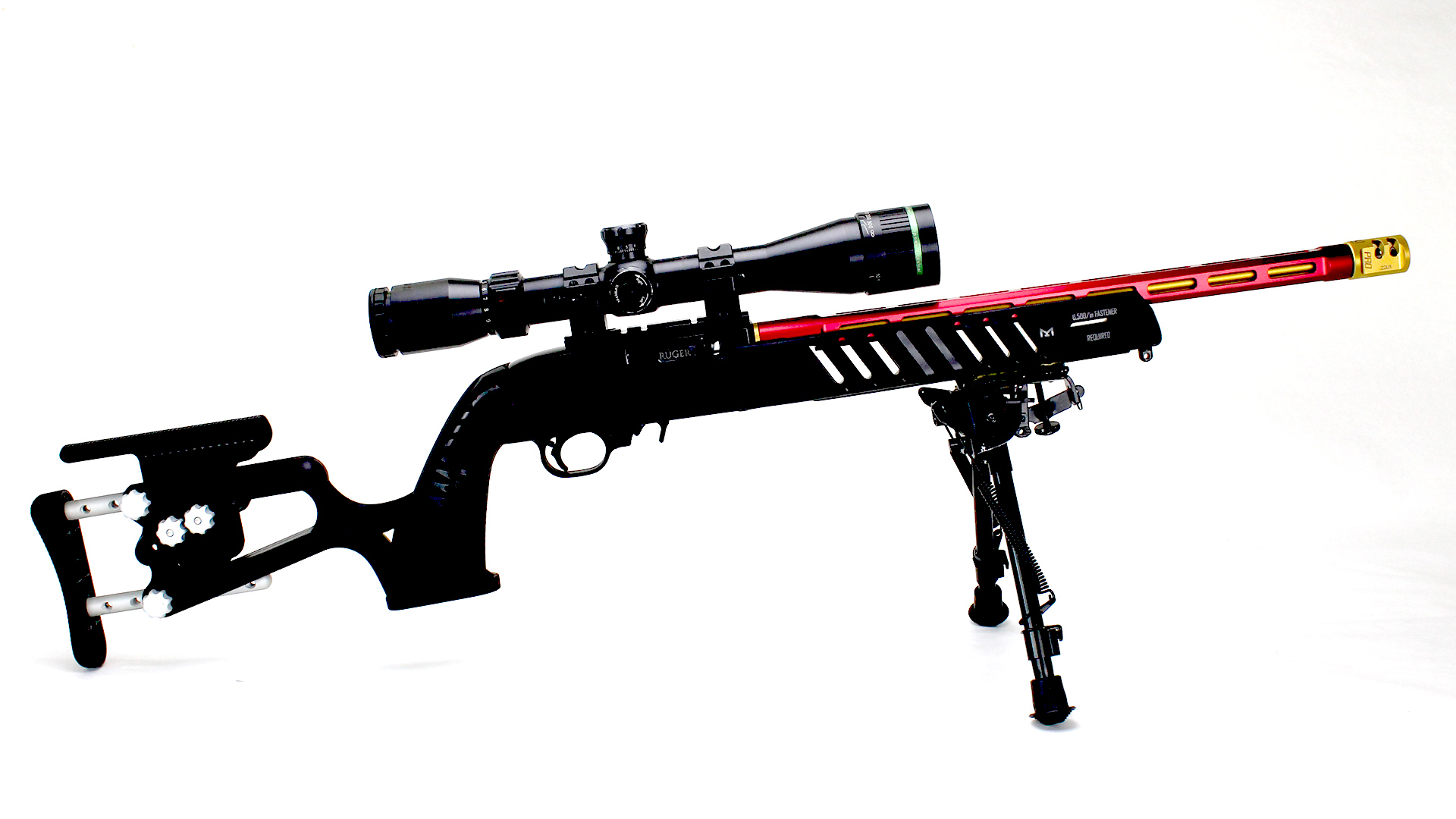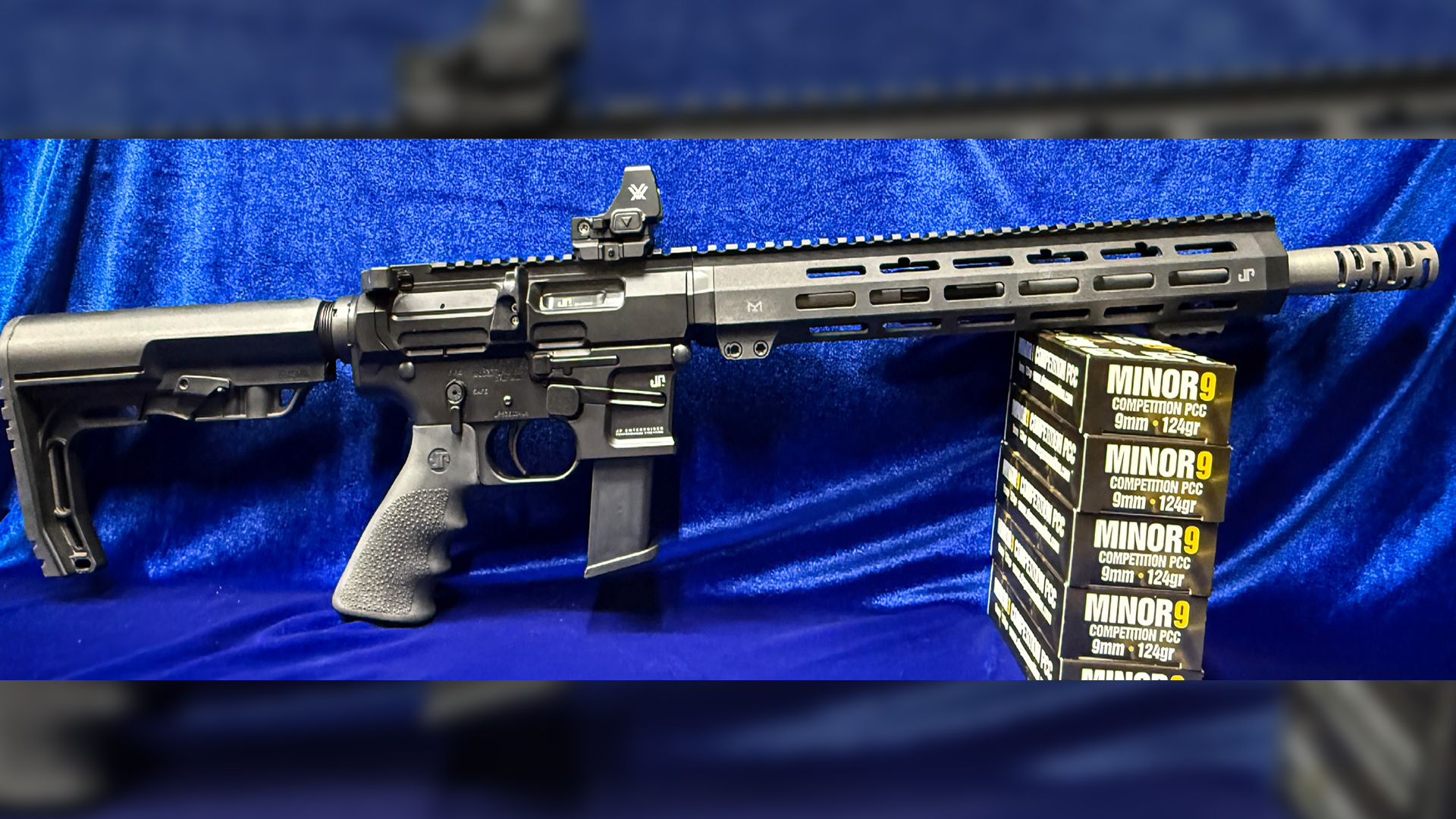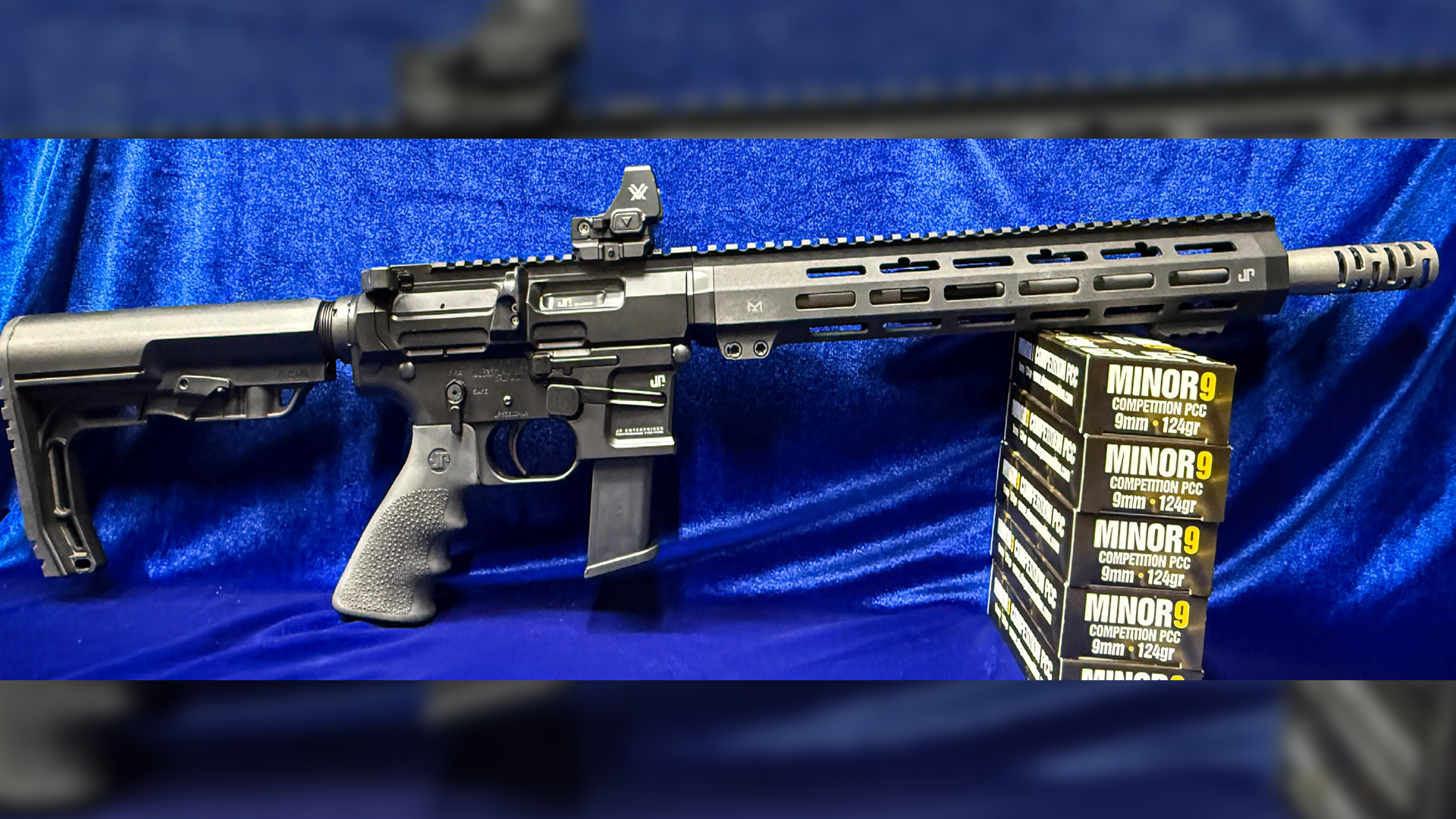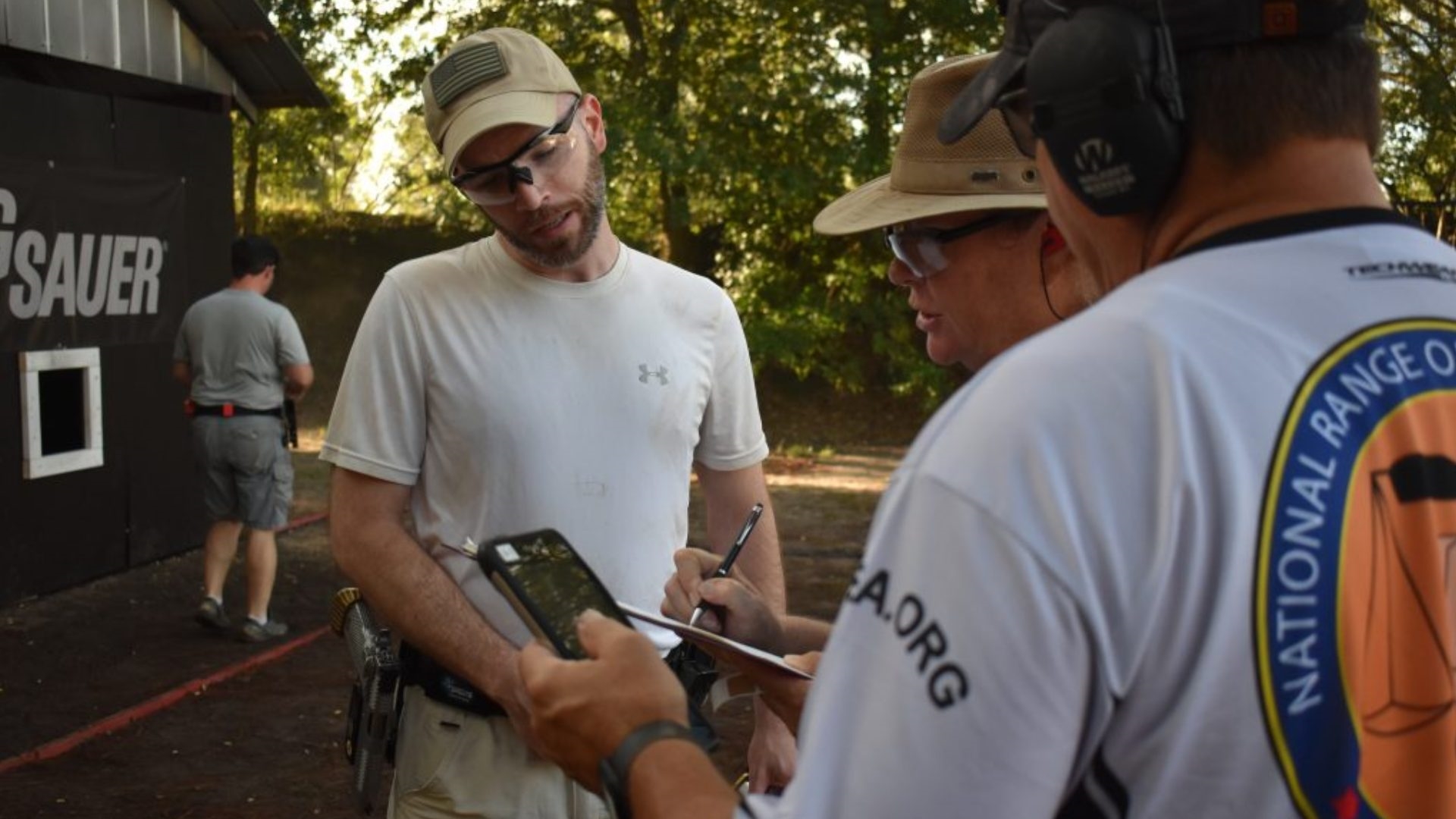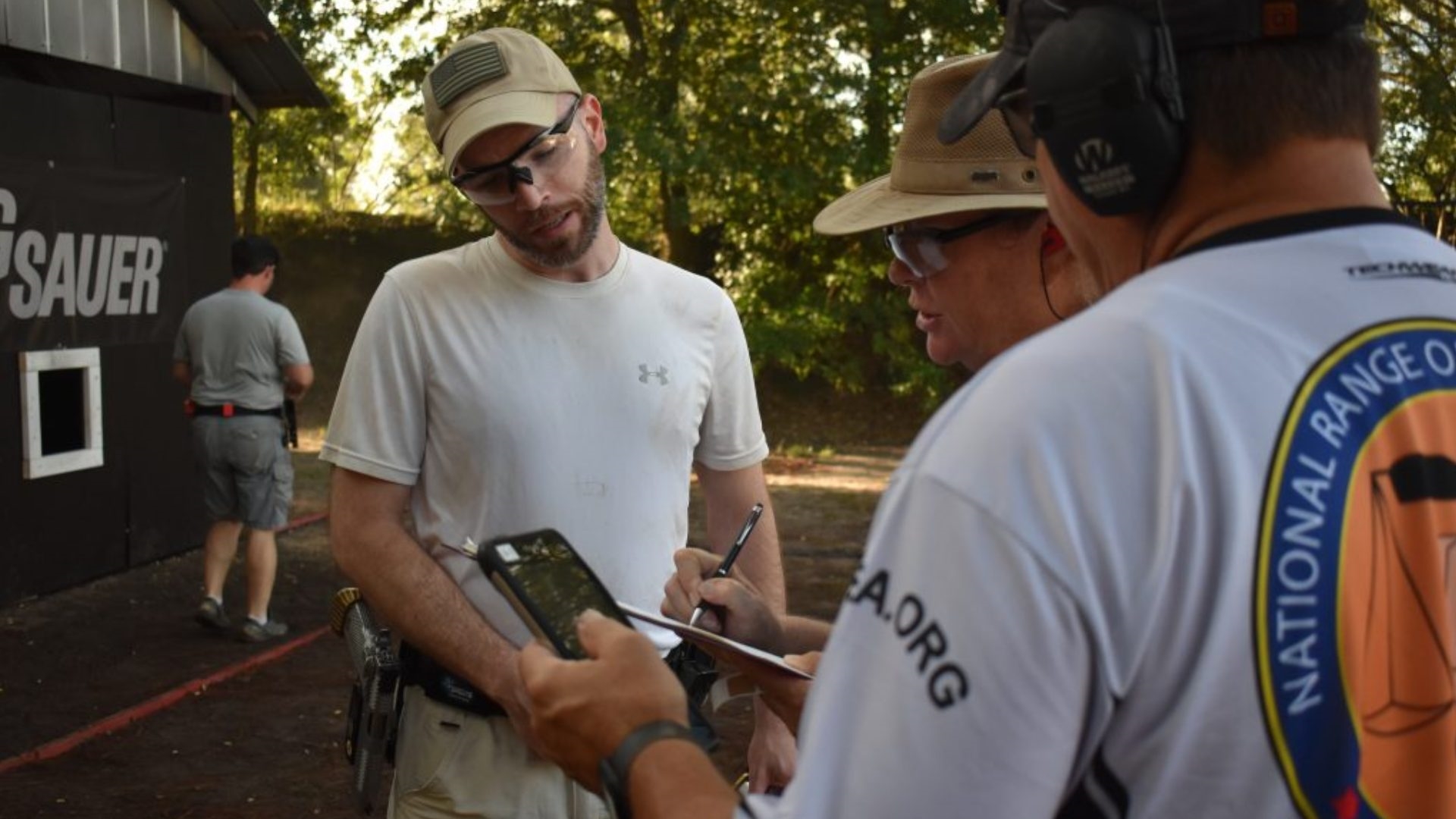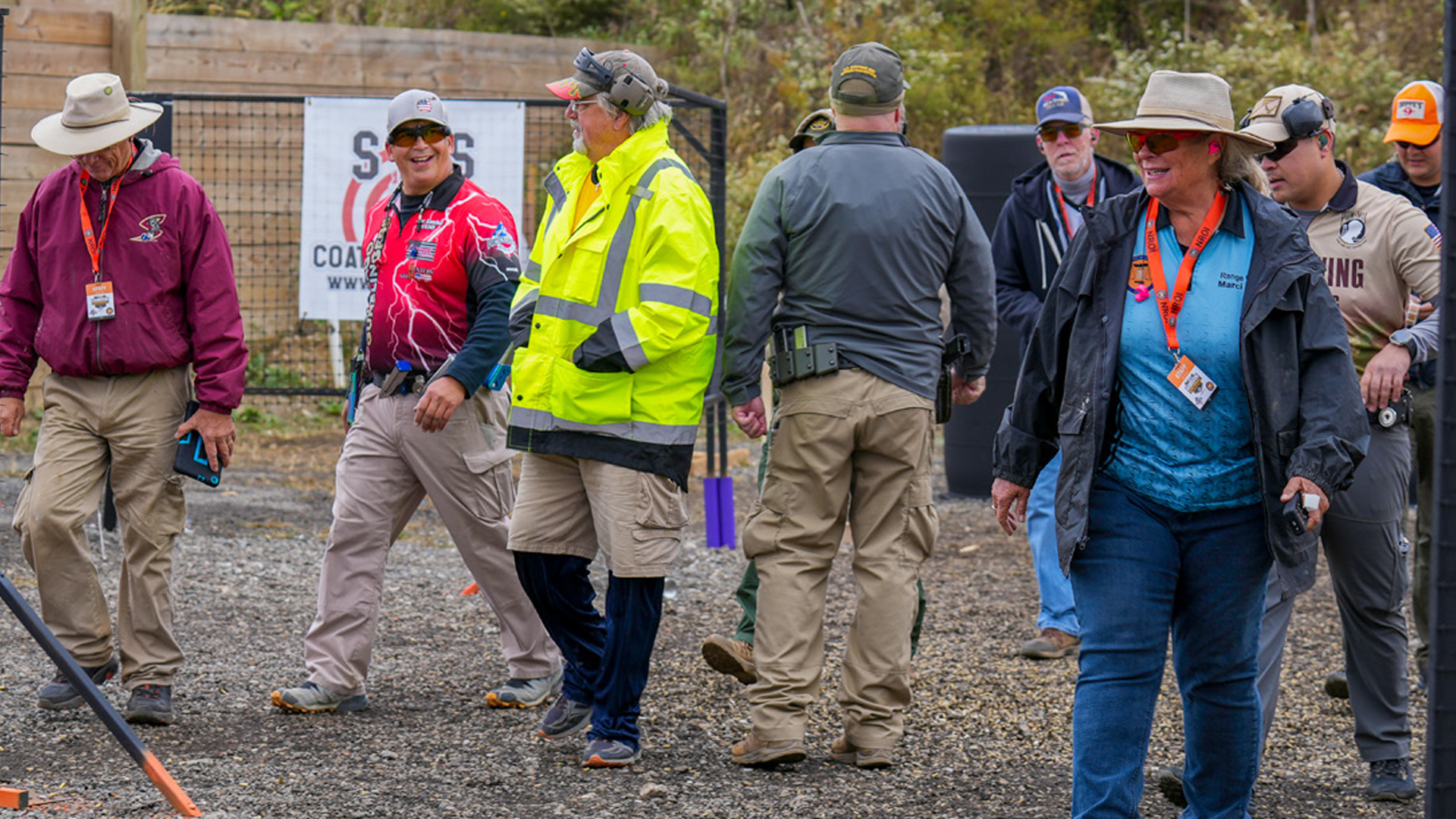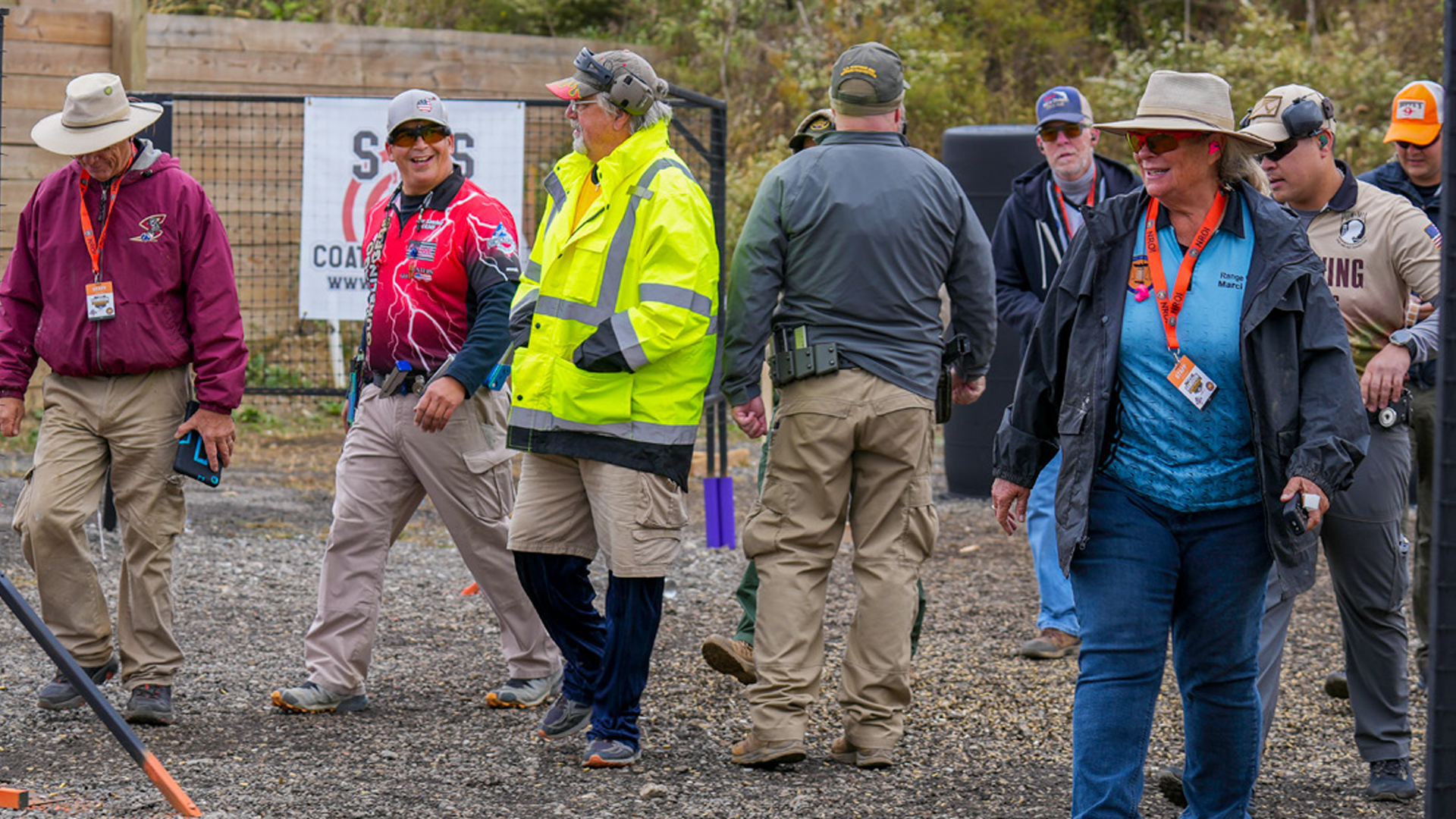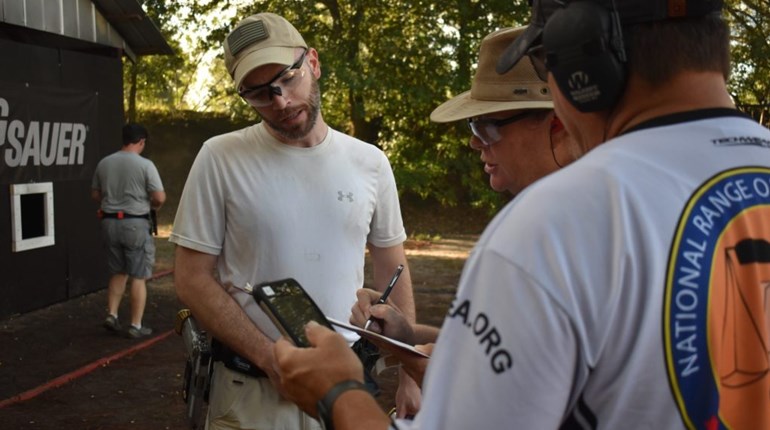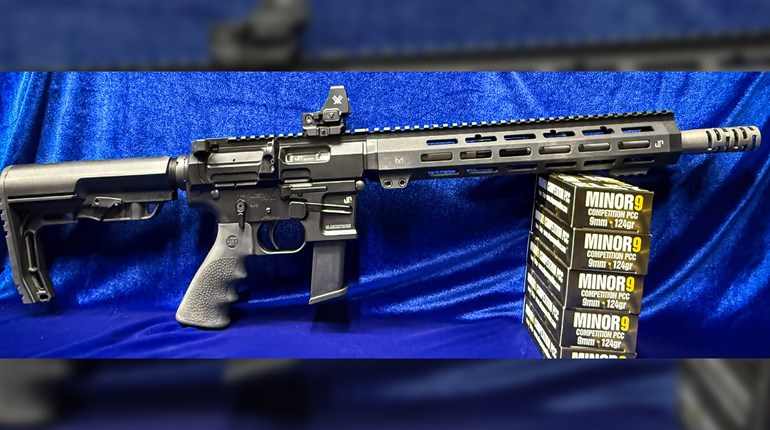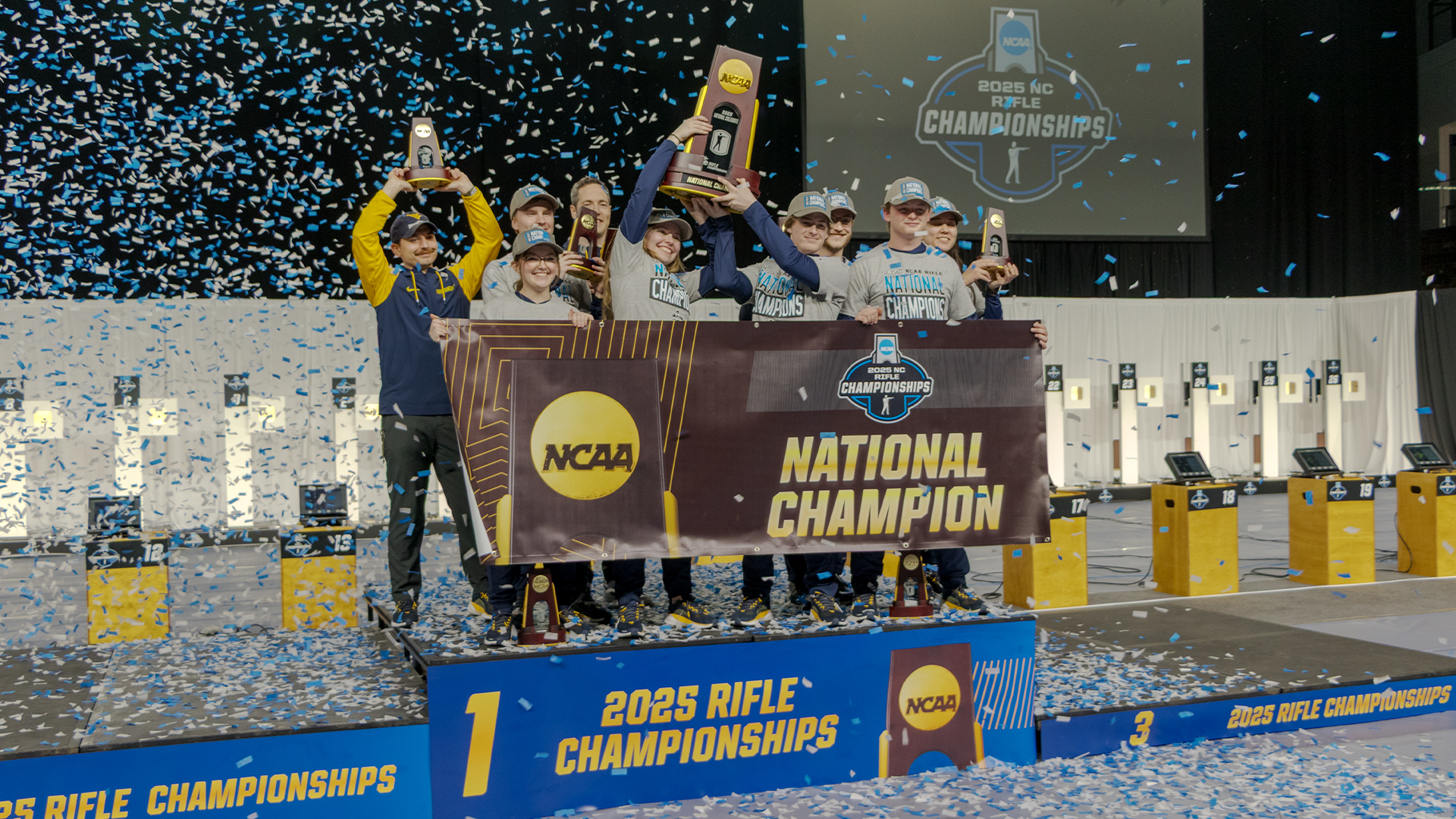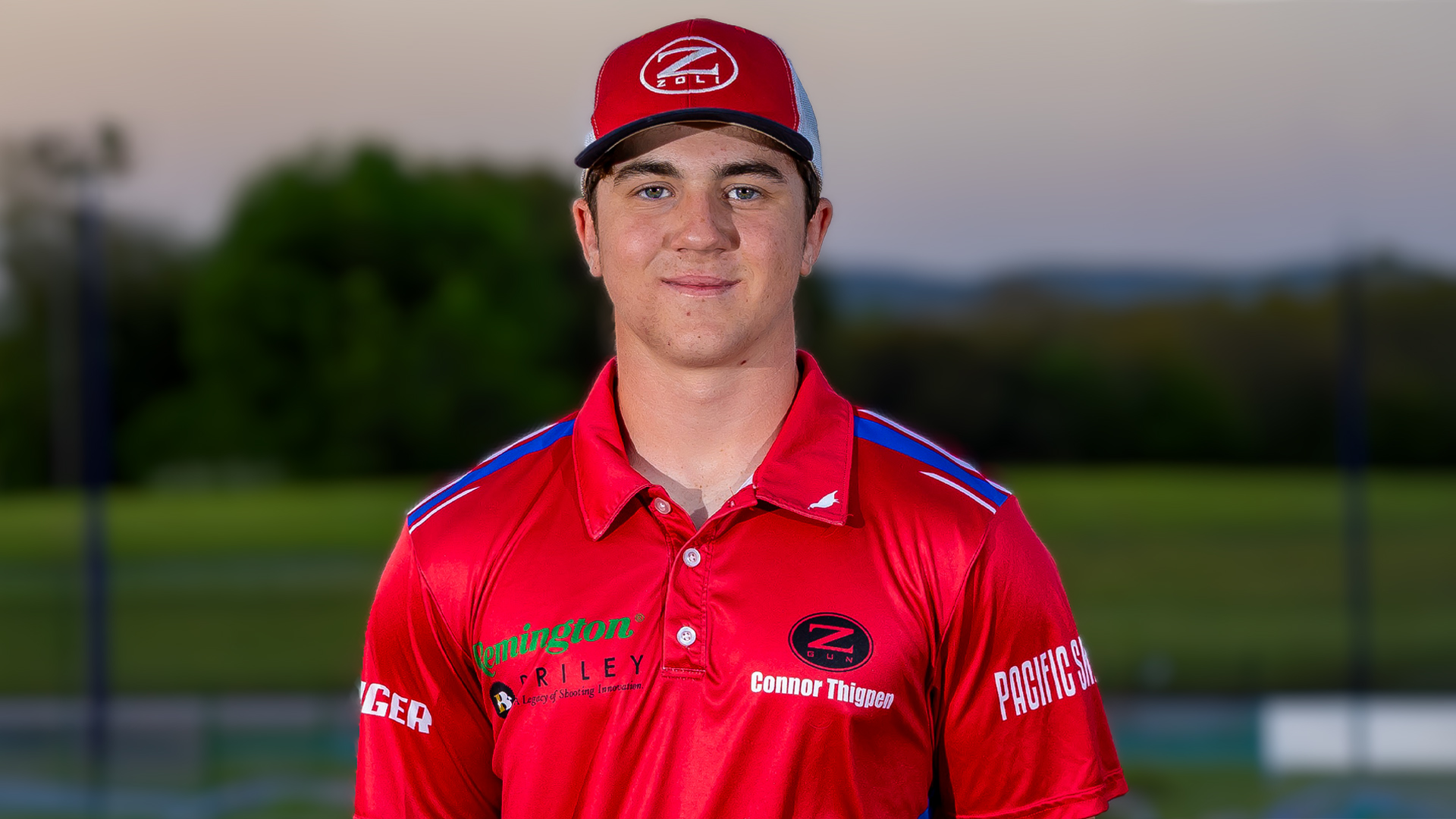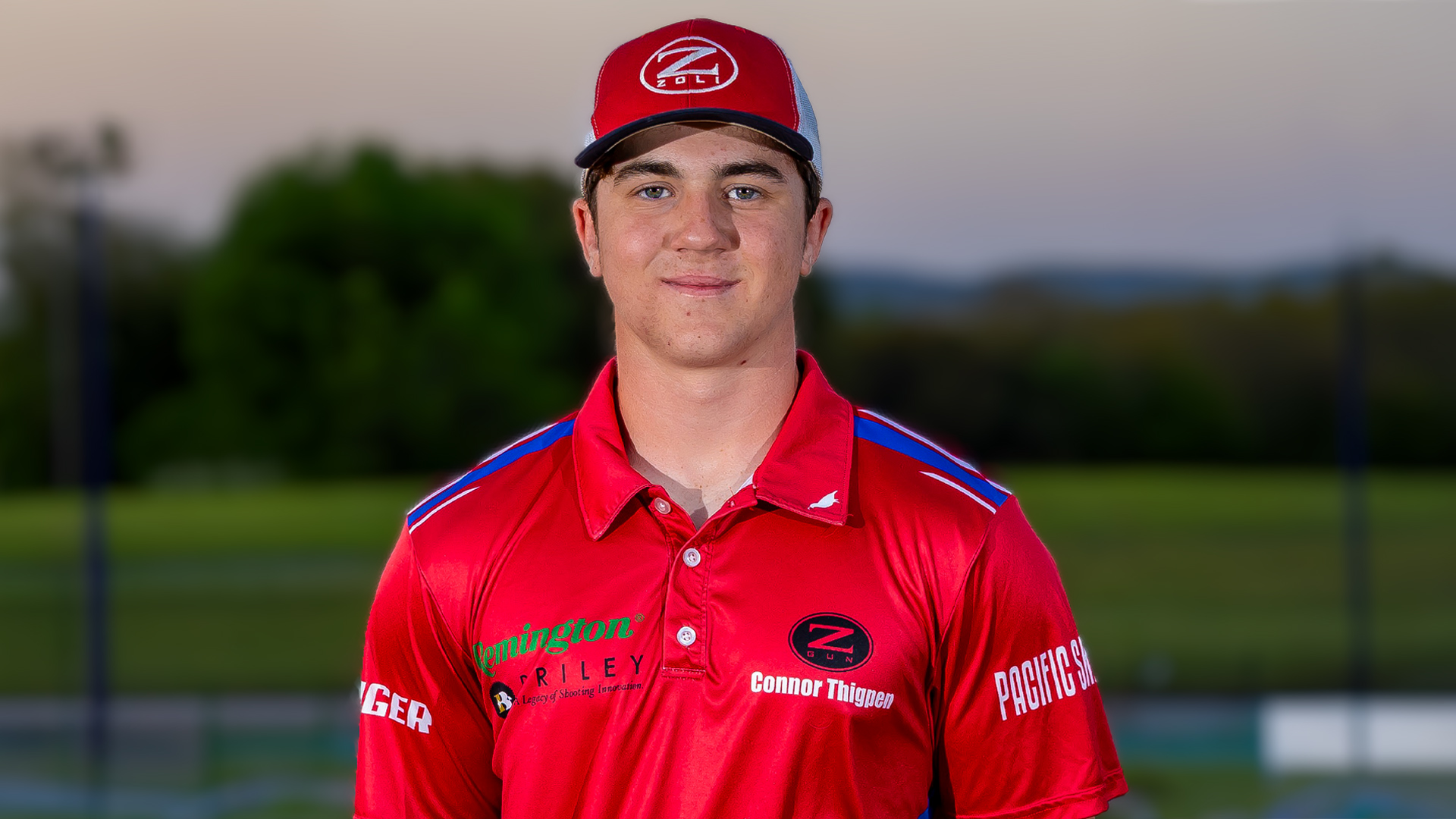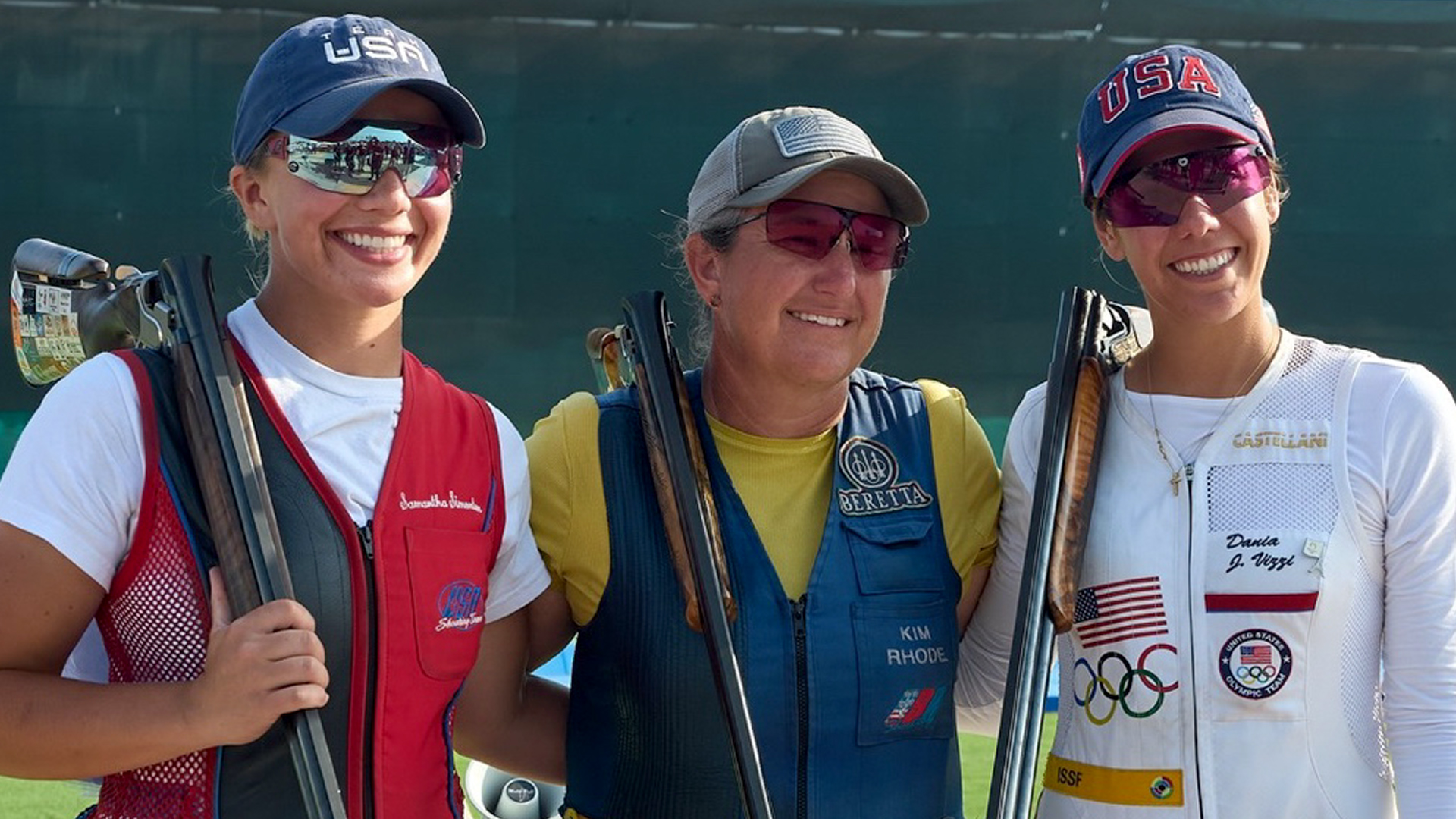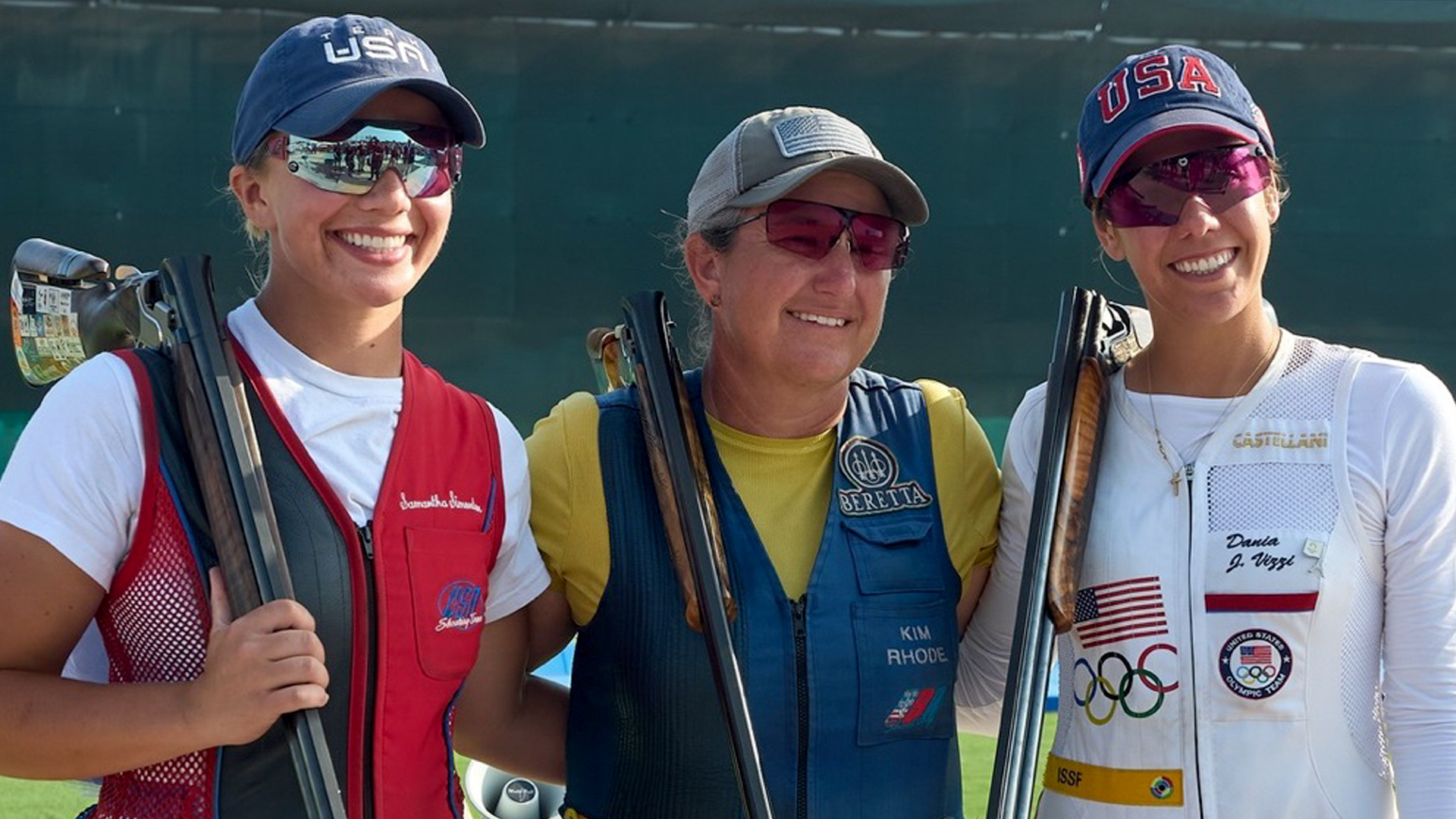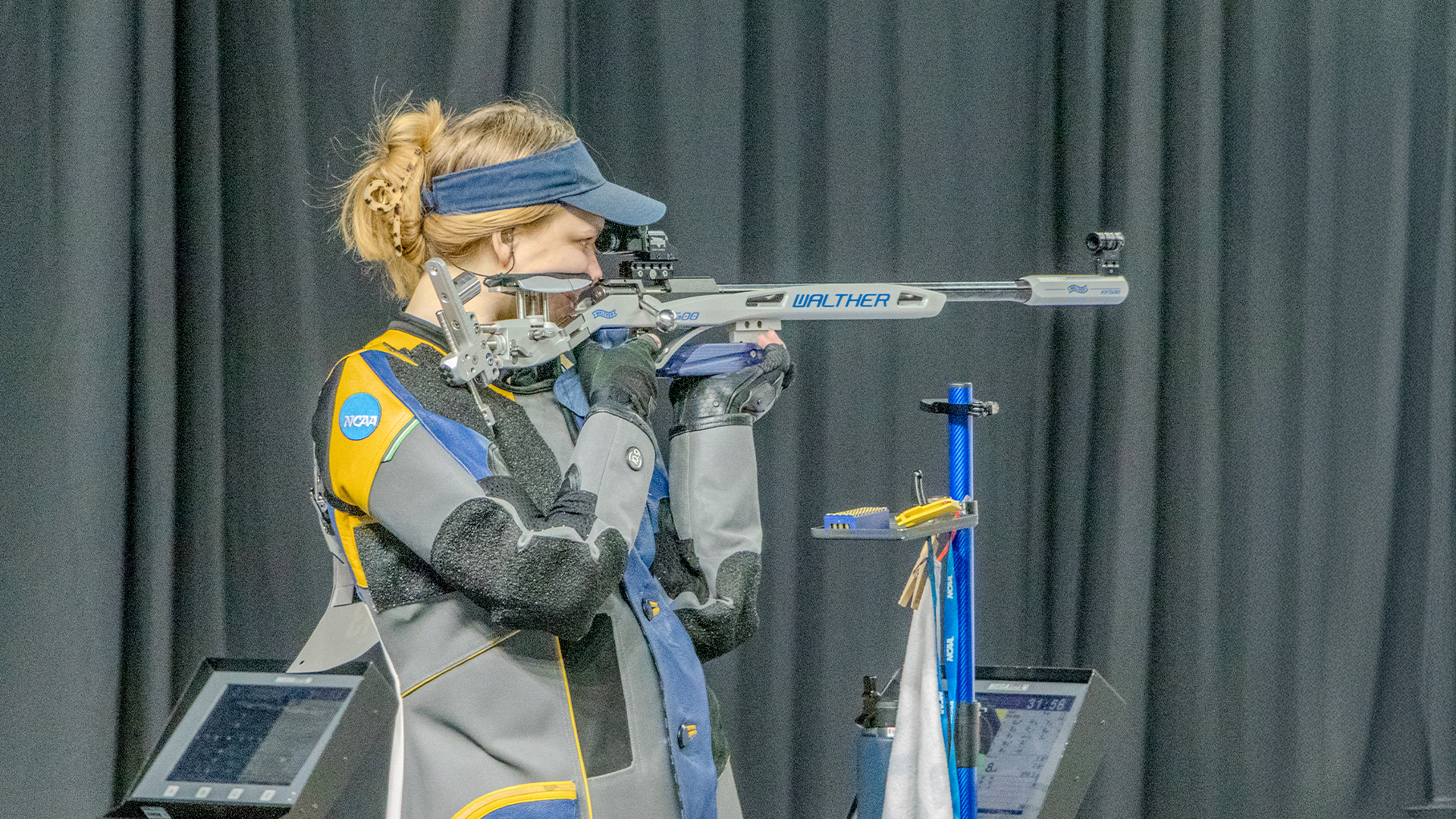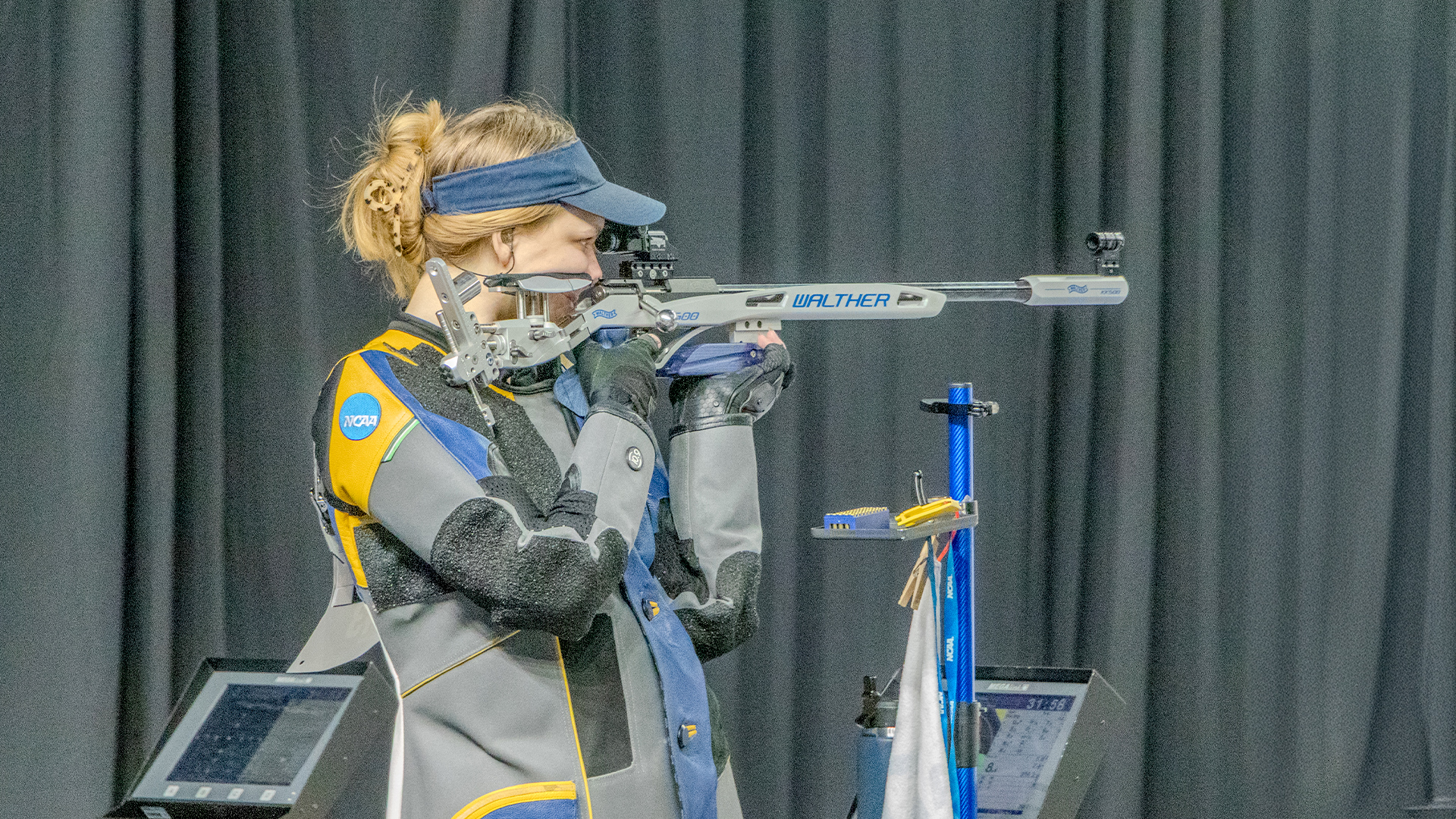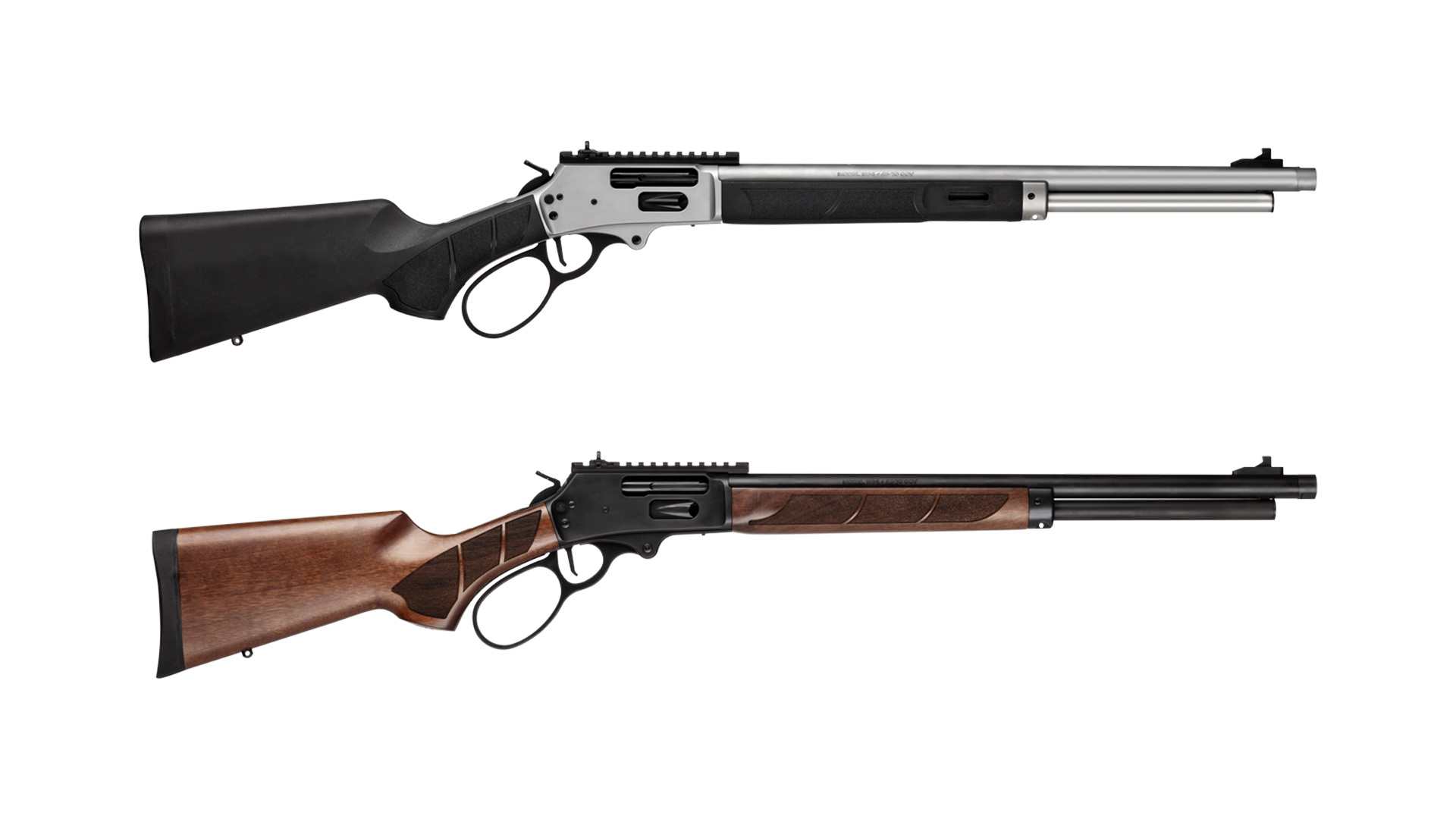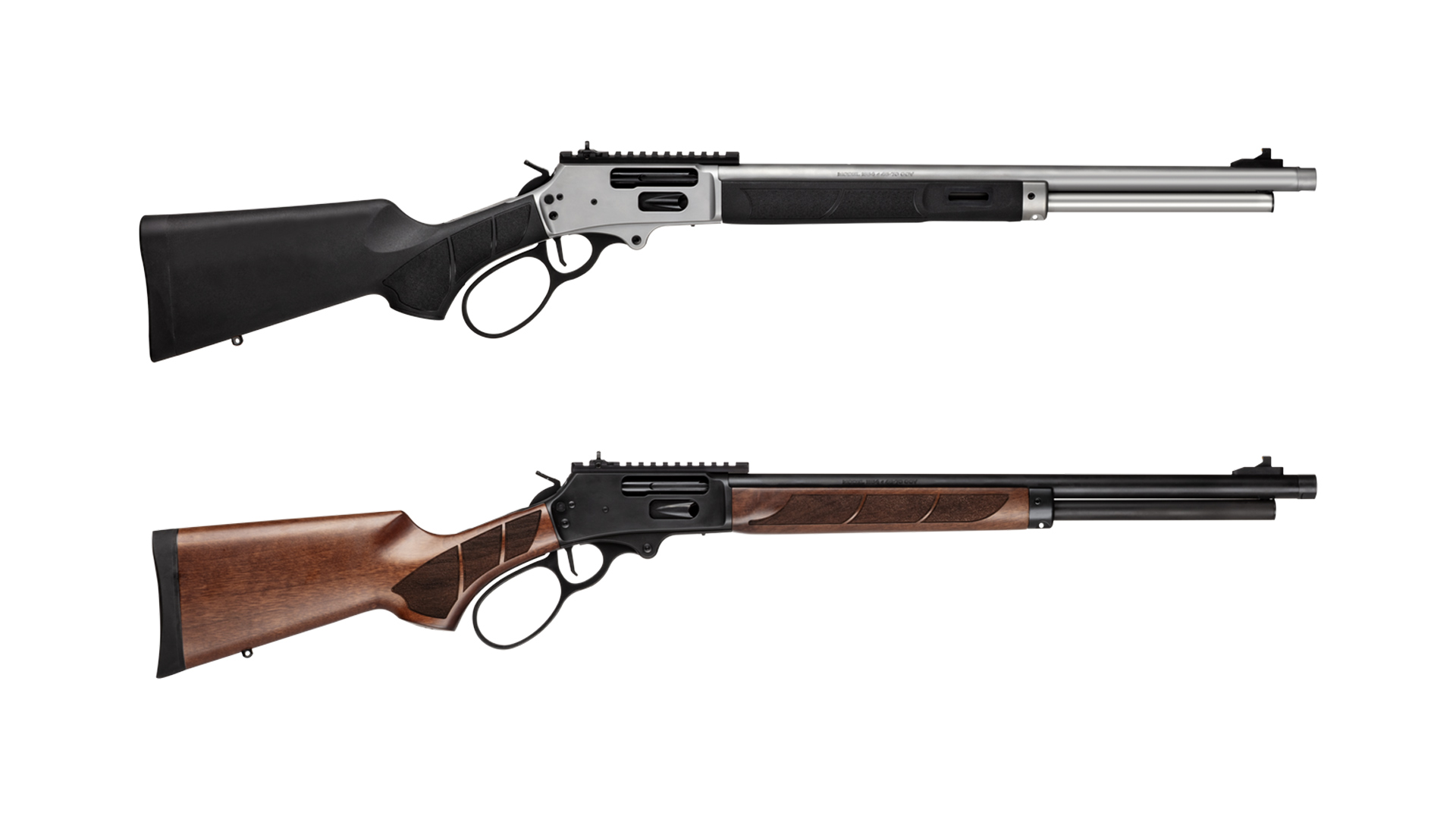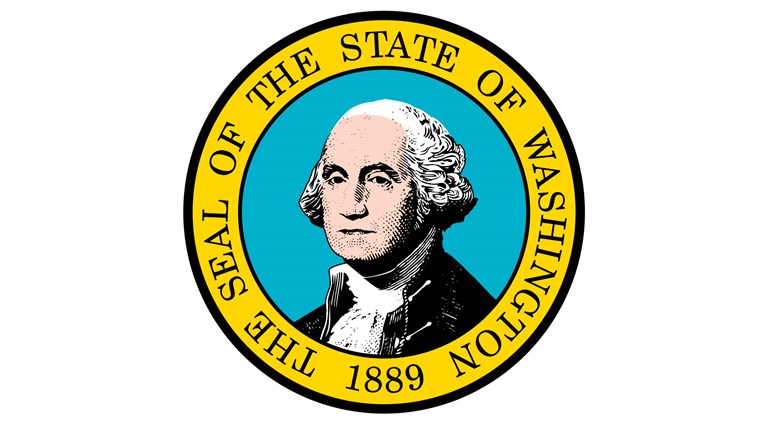
Morgan Leonhardt was introduced to competitive shooting sports early in life by her dad. Over the years, she’s competed in 3-Gun, USPSA, Steel Challenge, 2-Gun, carbine competitions and CQB matches. Fast forward to today, and she’s the new Ladies Carry Optics National Champion at age 14.
Recently, I had the opportunity to sit down with Leonhardt and learn about her journey with firearms, from the moment she learned gun safety to her current goals. She is by far one of the most knowledgeable, humble and well-spoken young ladies I’ve had the pleasure of meeting. There’s a lot that we can learn from her.
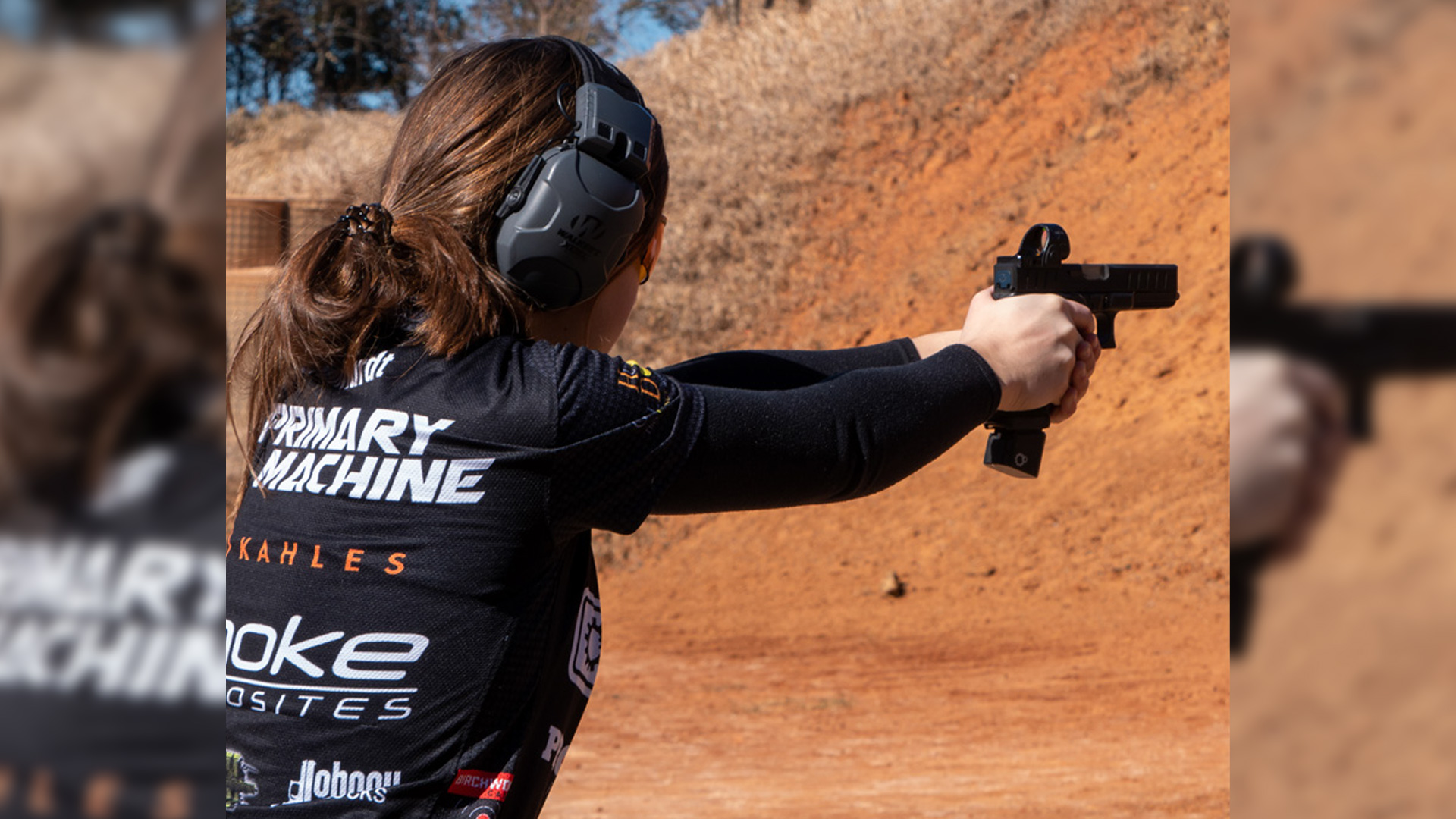
Q: I have to ask—looking back on your life, did you ever imagine you’d be competing at the elite level in different shooting disciplines and divisions?
A: Not at all. At that point, I was just excited to have what I thought would be a fun hobby.
Q: How old were you when you first held a gun? And when did you learn gun safety?
A: My dad taught me when I was maybe four or five years old. He showed me firearm safety and the functionality of different guns before I ever pulled a trigger. Like most of us, I learned how to shoot guns on my grandpa’s property and shoot at targets. My dad is a law enforcement officer and head instructor of firearms, so I was lucky in having a coach early on teaching me beyond the fundamentals.
Q: How did you get started in competitive shooting?
A: I was nine years old and in fourth grade, I went with my dad to watch him shoot a match. At the end of the match, the local match director asked me if I had any guns with me, to which I answered, “I have my .22 LR rifle in the car.” He told me to grab my rifle and they left a stage up for me to shoot. After firing the stage, the match director noticed I knew what I was doing regarding gun safety and firearms manipulation. He asked me to shoot the next monthly match with the club, which I did. I was hooked. I loved every second of shooting. My dad and I have been traveling and shooting competitions across the United States ever since. That one match director was the catalyst for getting my first competition under my belt.
Q: Who have you taken firearm lessons from or trained with?
A: The first official class I took was with Kita Busse on movement. I also trained with JJ Racaza, Christian Sailer, Max Michel, Blake Miguez, Max Leograndis and Steve Anderson. My dad set me up for success by teaching me to act like an adult when I’m on any shooting range. We don’t mess around, and we don’t play around. When I learned from some of the best shooters in the country, I focused on every word they said. I had a good grasp of taking in information and processing it. At the end of each class, I would write down everything I learned so I could go back at any time and remember anything I had forgotten.
Q: How do your parents support you in your competitive shooting career?
A: Both of my parents are super supportive of my shooting career. My dad trains me in everything. He is the one who brings me to matches, coaches me, and keeps me focused. As for my mom, she keeps me grounded and makes sure that my grades aren’t slipping, along with the final say on what matches I can go to or when I can miss school.
Q: How has your local club helped you grow as a shooter over the years?
A: I have several local clubs that I shoot with and they all have been supportive since day one. When I was first getting started, one of the clubs paid for me to go to the MGM Junior Camp in Idaho to train with some of the top shooters. That experience alone was so rewarding, and I am grateful to the club for making that happen. When my dad can’t take me to a match, someone from my local club will adopt me for the weekend and make sure I can get to a match and shoot. Everyone is supportive of me as a shooter, and they help me any way they can—on or off the range.
Q: I want to get into some of the harder-to-talk- about topics. You’re a junior shooter and a young female competitor. How do you handle situations when people assume you don’t know what you’re doing or offer unsolicited advice?
A: I don't get this too much anymore, but there are times when someone will come up to me and start telling me what to do, as well as what not to do—because that’s for the “professionals.” I’m always polite and thank them for the tips. I think it’s great when they watch me shoot, and later on, they’ll come up and apologize for trying to tell me what I can and can’t do. Anytime someone underestimates me, it fuels me to perform even more and prove what I can do.
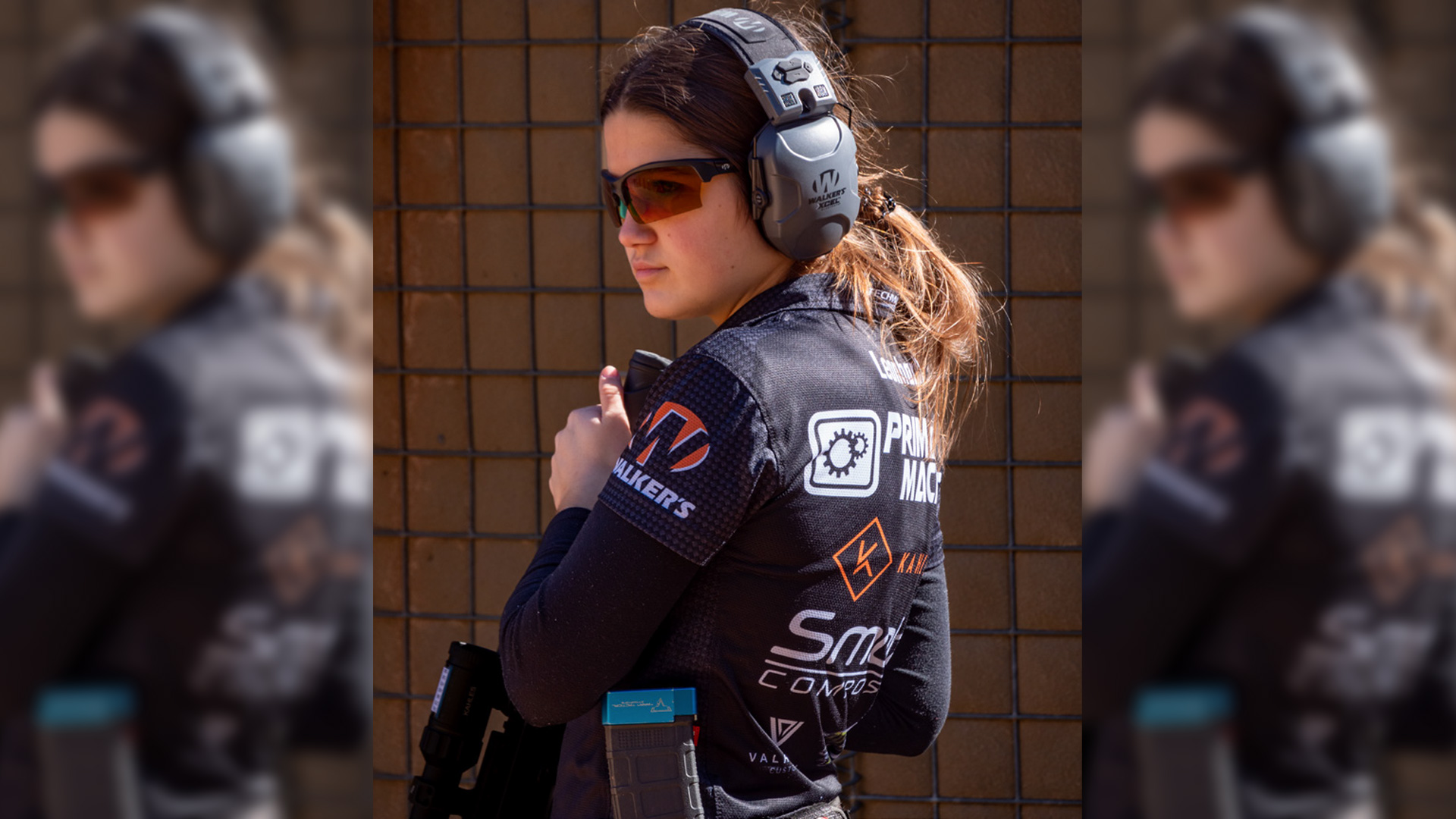
Q: Who did you look up to when you first started shooting?
A: Funny story—I looked up to Lena Miculek. One year, I was going to shoot Babes with Bullets at her family’s range, but I got sick and had to back out of the match. My dad went without me and sent me a text message with a video attached. It was a video from Lena. She told me I wasn’t missing much due to the rainy weather and sloppy range conditions, but she also told me to keep working and training hard. Lanny Barnes is also one of those women I look up to, and she sent me a video from the same match. Fast forward to 2021, Lanny and I shot together on the Ladies Super Squad, and I showed her the video she sent me all those years ago. Shooting with her and having everything come full circle was incredible.
Q: What do your dry-fire and live-fire training look like?
A: Three times a week, I have dry-fire practice sessions that last about 30 minutes each. I look at my most recent match videos and think about my live-fire training sessions to pinpoint what I need to work on the most. Usually, it’s entering and exiting positions, target transitions and shooting on the move. It’s a lot of footwork. Additionally, it’s essential for my dad and I to work on grip strength. We use crushers and bands to work our hand muscles and grip strength. I live fire at least once a week, whether it’s a local match or training day at the range. Whatever I’ve been working on in dry fire, I will make my main focus in the match or training day.
Q: What are some things you’re required to do or help out with to compete?
A: I pay for all my match fees, hotel, airfare and other expenses. I can do this thanks to my amazing sponsors who help me pay for everything, and with the money I earn from maintaining good grades. My dad and I use brass catchers at the range, but I’ll also pick up brass. We started reloading our ammunition about two years ago, so I reload both his and my pistol and rifle ammo. I clean my pistols, but my Beretta shotgun is a little bit of a challenge to clean. He will help me out with cleaning that gun. And as long as I’m putting in work in school and maintaining good grades, I’m able to shoot.
Q: Why is it important that more juniors and more females get into shooting sports?
A: First, because it exposes them to firearms, firearm safety and how guns function. Shooting sports are all about safety first, and competitions are a great way to get educated on how to shoot, clear malfunctions, learn to reload and general firearms manipulation. The shooting sports are male-dominated, so people will often only associate guns with men or being more masculine. It’s crucial that women and juniors become part of the sport because they can shoot just as well, if not better than most. It’s empowering for them to realize what they are capable of. And who wouldn’t want to be part of this community? It’s such a good group of people that you cannot find anywhere else that just feels like home to me.
Q: Do you think females cannot compete against men at the top level?
A: Not at all. There will always be limitations for everyone when it comes to shooting, no matter what gender. It’s all an equal playing field and is about putting in the work.
Q: How can we, as a community, do better to help support or drive more women and juniors to get into the sport?
A: It’s imperative to be welcoming. You never know if it’s someone's first time on a range or even learning about a shooting competition. As junior competitors get started, encourage them to keep going and not judge them. It’s important to remember where you started.
Q: How has shooting changed you or grown you as a person? How has competing at the elite level helped you in other aspects of your life?
A: Shooting has given me a completely different perspective on the importance of having a solid mental game and mindset. When I have a bad stage, I don’t let that bad stage carry over into my following stages. In real life, when something gets me down or something terrible happens, I don’t let that one thing ruin my day. The same mentality I have in shooting sports carries over into everything and how I live my life.
Q: Becoming a National Champion is no small feat. When did you decide to commit to competing at the USPSA Carry Optics Nationals?
A: I wasn’t utterly hardcore about Carry Optics or exclusively shooting USPSA. I’ll always be a 3-Gunner at heart, and I enjoy shooting other sports, but about seven months before the USPSA Nationals, I made the commitment to train for only Carry Optics.
Q: How did your training change once you made the switch to work towards a national title?
A: About three months before the 2021 USPSA Nationals, I was dry firing every day and live firing three times a week. Shooting became my priority over schoolwork, so I’d come home and train before I sat down to do homework.
Q: What were your expectations for the USPSA Nationals?
A: I didn’t have much expectation on how I would place, but I had confidence in my shooting. I would’ve been happy making the top five women in Carry Optics. I knew that the competition was fierce, as I’ve been watching these ladies compete for my entire shooting career. I got nervous once I learned I would be shooting on the Ladies Super Squad. At first, I thought about how many people would be watching me and stressed about how I didn’t even have a shot at winning. I eventually calmed down and decided to worry about myself, shoot my game, and have fun.
Q: Your mom came to the USPSA Nationals with you and your dad. How did both of your parents support you over that weekend?
A: My dad and I have always helped each other figure out stage plans, stay mentally tough, and focus on one stage at a time. I never once looked at my stage results or Practiscore until the USPSA Nationals was over. Both of my parents were stressed, and after every stage, you would just see them scrolling on their phones. My dad never told me where I stood, but he would tell me when I needed to push and when I just needed to maintain my consistency. My mental game kicked in early on as I just enjoyed myself over those three days. Each day I would shoot my game, have fun, and shooting with the female competitors was a joy. We all would help each other out, discuss stage plans and work hard to reset stages. My mom was super supportive, and I was thrilled she came to watch me shoot.
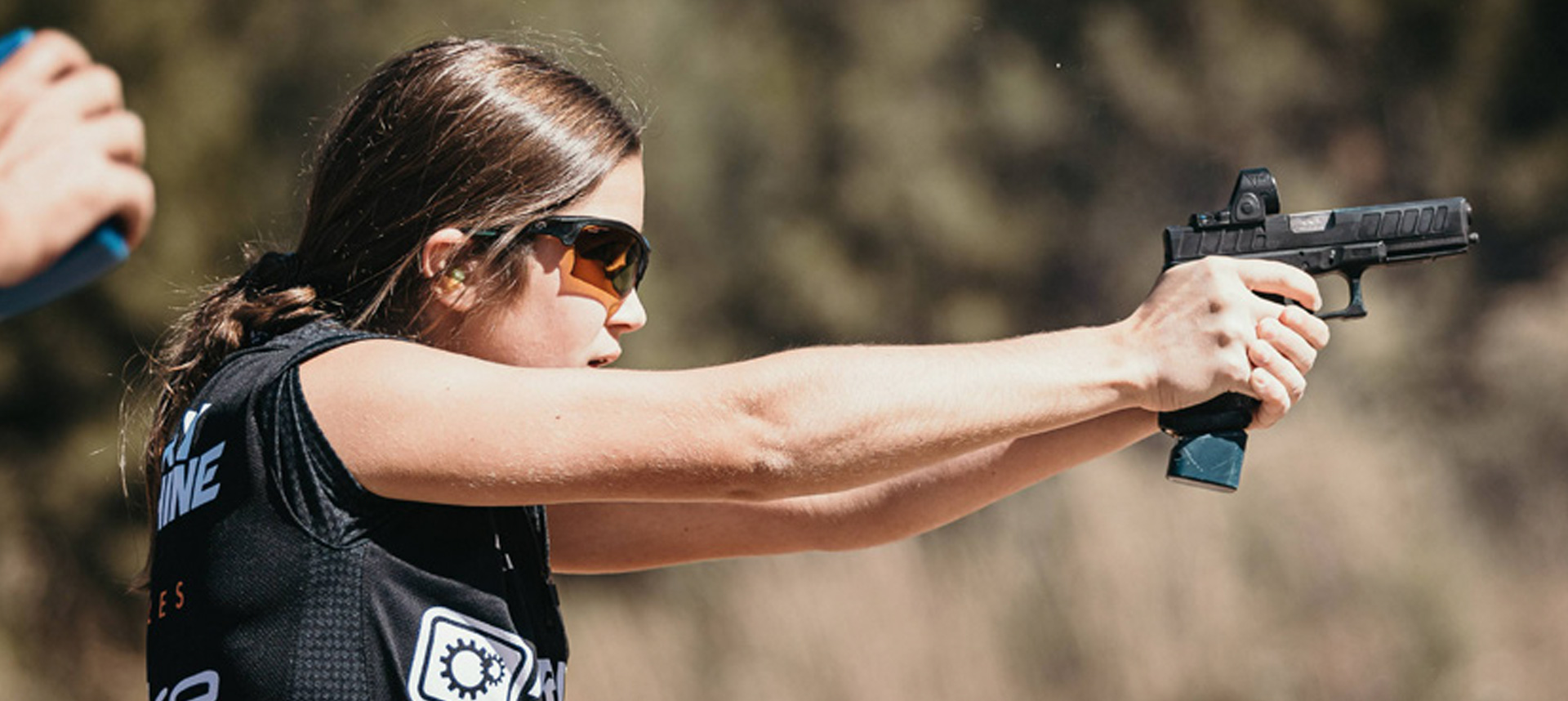
Q: When did you find out you had won?
A: I had no clue where I stood in the results throughout the entire match. I didn’t realize USPSA updates scores to Practiscore in real time. As soon as I was done shooting my final stage of the last day, I turned around to see my sponsors, Primary Machine, my parents, Blake Miguez and Ashley Rheuark looking at me. Ashley was the first to come up to me, hug me, and wish me congratulations. At the time, I couldn’t understand what she was congratulating me on until she told me I had just won the USPSA Ladies Carry Optics title. I didn’t think she was serious until I turned to look at my dad and saw him nodding his head with tears of joy in his eyes.
Q: What did the days that followed look like for you?
A: I was truly in shock. It didn’t feel real for a long time. When it finally hit me, I was proud that I had accomplished one of my top goals in life in just seven months. In November, I shot the Fort Benning Multi-Gun Challenge with my dad for the first time. I was excited to take fifth in Open despite not shooting 3-Gun much the last year. I just had my off-season for about a month and am back to training.
Q: What are your goals for the rest of this year?
A: My goal is to shoot as many USPSA Area matches as possible and place as high as I can. Each USPSA Area competition has its own flavor, so I want to get a feel for the types of stages each one offers. I will be focusing on Carry Optics, but Open seems interesting. I'll try to squeeze in the Fort Benning Multi-Gun Challenge at the end of the year.
Q: Is there any pressure to defend your 2021 USPSA Carry Optics title?
A: Of course, I want to defend my title, but I’m not going to push myself to perform outside of my comfort zone. I just want to have fun and shoot my game. We’ll see what happens this year.
Q: What are some things you wish you had known when you got started?
A: I would have asked for more help as I had no clue how many people were willing to help me. I also learned that no one cares about your performance. They are focused on their match and won’t remember any mistakes you made on a stage.
Q: Any final thoughts?
A: Remember to have fun with it and don't give up. Try not to let anything discourage you, and remember that we all had to start somewhere. If you love it, keep doing it. And lastly, always encourage people to come out and shoot. We want to make this community bigger, not smaller. We all play a part in that.
Article from the March/April 2022 issue of USPSA’s magazine.

